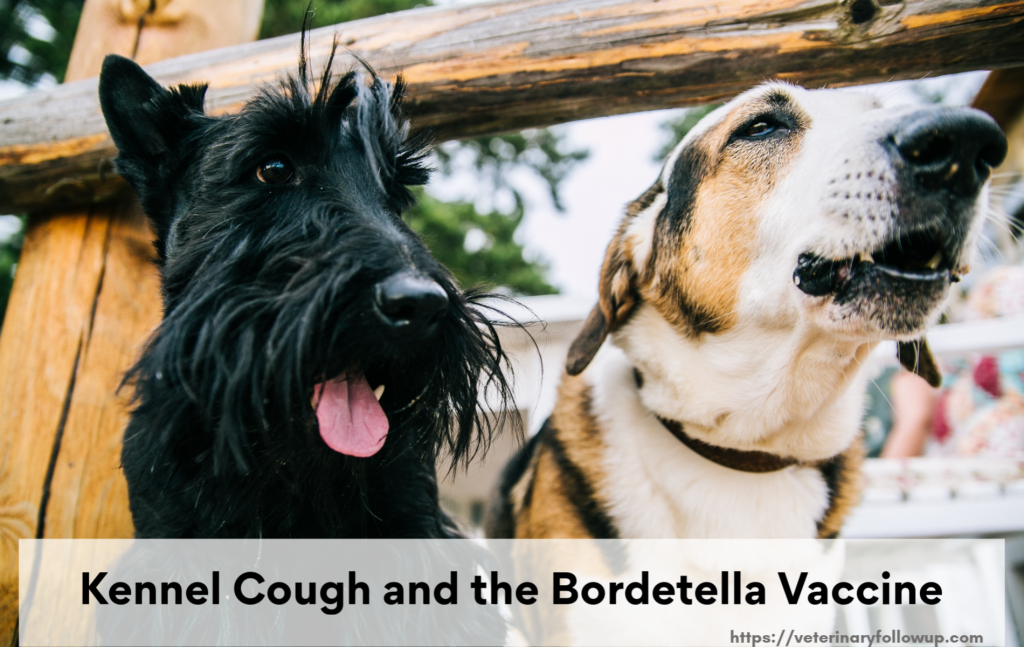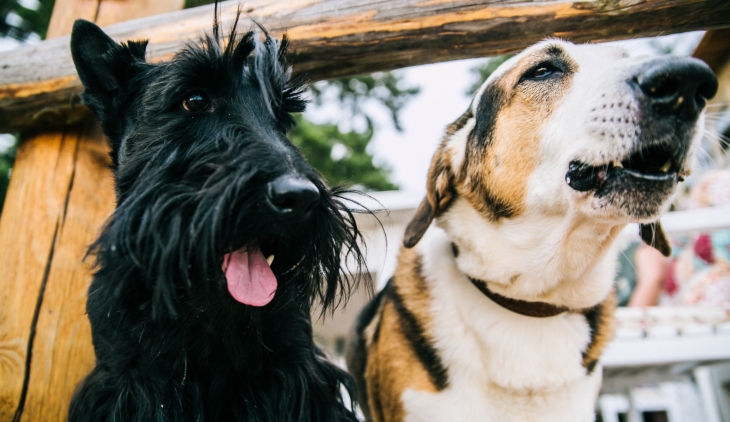What is Kennel Cough?
Kennel cough, also known as canine infectious respiratory disease (CIRD), is a type of infection that irritates dog’s airways. It can cause coughing, sneezing, dehydration, decreased energy, and fever. Kennel cough is the general term used for the type of illness rather than the specific bacteria or virus that causes it. There are 13 types of bacteria and viruses that are most commonly associated with the set of symptoms. The bacteria Bordetella bronchiseptica and the parainfluenza virus are two of the most common.

How does kennel cough spread?
Kennel cough is spread in the air and on contaminated objects such as clothes and toys. The recommendation, if your dog spends time with any dogs other than her housemates is to vaccinate.
How contagious is kennel cough?
Kennel cough is very contagious. Since it spreads easily through the air, just one dog can infect an entire facility. Once one dog gets sick, the cycle can continue for weeks while new dogs are infected, get sick, and then continue to infect other dogs. Kennel cough can also be spread when dogs share toys that go in their mouth or drink from shared water bowls.
What is the kennel cough vaccine?
The kennel cough vaccine can be given by injection, by mouth, or in the nose depending on the formula. The formulation of some vaccines only include Bordetella, a bacteria commonly found in dogs with kennel cough. Other Bordetella vaccines also include parainfluenza, a common virus associated with the same set of symptoms.
Bordetella
Bordetella makes it easier for other types of bacteria and viruses to infect your dog. Parainfluenza contributes to the symptoms of kennel cough and is primarily associated with persistent cough and gagging. Being a virus, prevention of the disease with a vaccine is a better option as parainfluenza is not susceptible to antibiotics.
Most kennel cough vaccines protect your dog for 12 months.
Will the Bordetella vaccine prevent my dog from getting sick?
Importantly, the bordetella vaccine will not prevent your dog from getting sick. Much like the flu vaccine in humans, the vaccine works by helping your dog fight the infection to reduce the severity and duration of symptoms. Once vaccinated, you may not notice any signs of illness, even if your dog becomes infected.
Does my dog need the Bordetella vaccine?
If your dog spends time indoors with other dogs who she does not live with, then she should be vaccinated. This recommendation includes dogs who go to dog shows, daycare, grooming, boarding, and group training.
If your dog spends time around other dogs, even if that time is outside, the vaccine is still important. This is because dogs at the dog park share toys covered in saliva and drink from communal dog bowls. The same is true for dogs involved in outdoor training such as fly ball, agility, and even field trials and group hunting events.
Therapy Dogs and Bordetella Vaccine
It is also essential to vaccinate dogs who participate in therapy activities, including those who visit hospitals, nursing homes, and other facilities where people are ill. People in those facilities may have severely compromised immune systems, and so all precautions should be taken.
Is the dog flu different than kennel cough?
The dog flu (canine influenza) is different than kennel cough. An analogy would be the difference between the common cold and the flu. Just like in people, the flu is generally more severe although dogs who are young, old, or otherwise in compromised health can become very ill from kennel cough.

